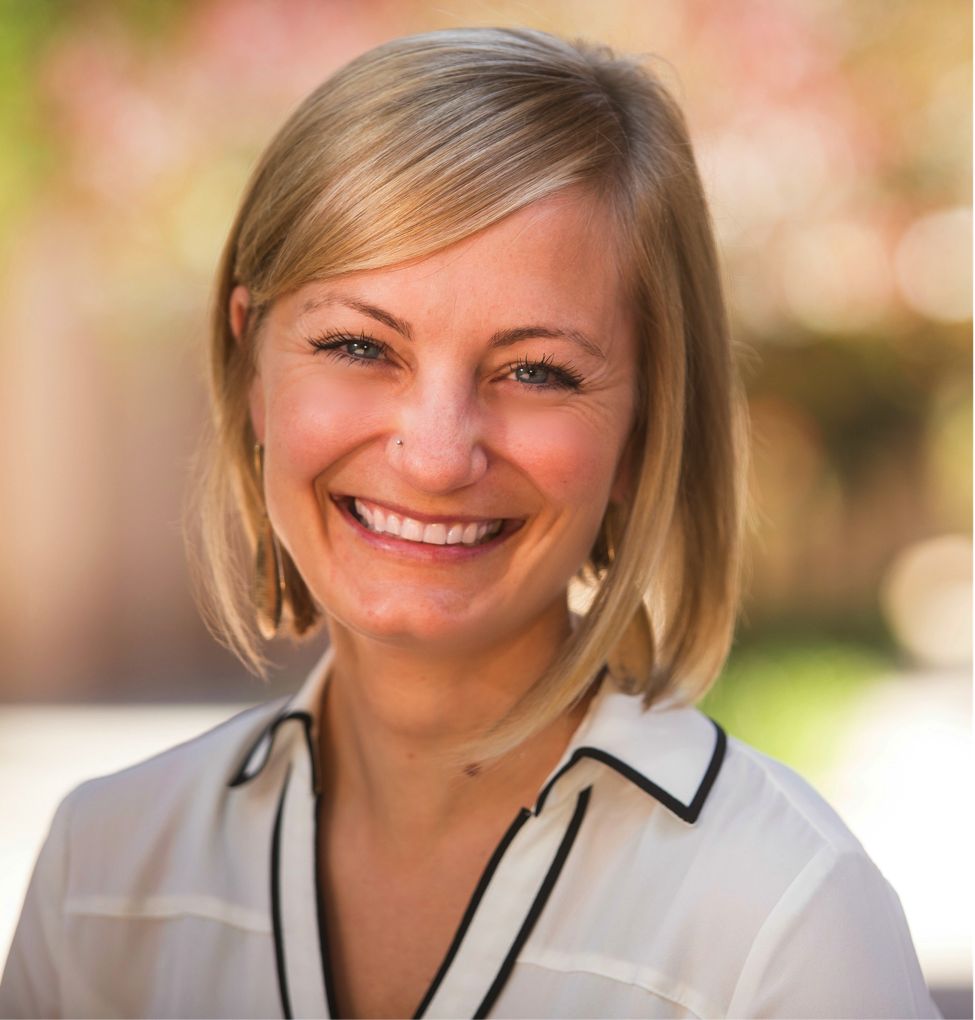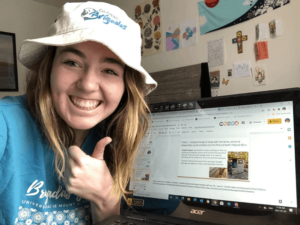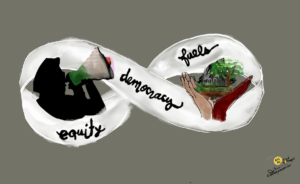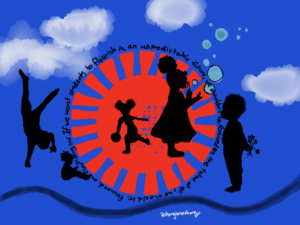Seeds Of Opportunity In Crisis

Many of us are feeling the “pandemic wall” right now.
This is understandable given the multiple crises the past year has wrought that at times feels never-ending. Collectively, we are facing crises of Health, Economy, Natural Disaster, Democracy, and Systemic Racism. And then, within all of this larger context, there is the crisis in our schools.
Many are looking forward to a return to normal school next year post-pandemic—but do we want to return to the old normal?
Even pre-pandemic, the old normal was one in which only 54 percent of students feel hopeful about their prospects in future school or to achieve their goals; and, one-third of students report they are struggling or suffering. The old normal is one in which schools are responsible for making sure our nation’s children are fed. The old normal is not equitable nor just.
We are, hopefully, at a turning point for the pandemic. We are moving out of triage mode. Vaccines are being distributed, cases are dropping. While we are still feeling very much in the darkness, glimmers of light are beginning to signify the arrival of a new dawn, of a new spring.
This in-between moment offers us a chance to ask what these crises have taught us about who we are, who we want to be, and what we want to be the “normal” to which we return.
The Seeds of Opportunity in Crisis
In modern-day English, the word crisis simply means, “a time of intense difficulty, trouble, or danger.” However, the roots of our word “crisis” are broader. The word comes from the Greek word krisis ‘decision’, which is from PIE root *krei- “to sieve,” thus “discriminate, distinguish.” In Chinese, the word, 危机 (wéijī), is composed of two brush strokes or words: one brush stroke stands for danger, the other for opportunity.
Decision and opportunity.
In this moment of multiple crises lie the seeds of opportunity. Opportunities to make new decisions—to discriminate, to “sieve”—a.k.a. to retain the potential good and allow the rest to pass—to imagine new ways of being, and to take action to co-create those possibilities.
This has borne out in history. Consider that in the 1920s inequality was on the rise and there was very little social safety net. The subsequent crash of the stock market in 1929 and the Great Depression—true crises of epic proportion—provided the opportunity for reimagining our economic system and social safety net. The New Deal was created, which re-started the economy and created the Social Security Administration to ensure that those most vulnerable—the unemployed, the young, and the elderly—were supported.
There are seeds of opportunity in crises—but we have to create the conditions for them to sprout.
These conditions include:
1) Creating time and space for reflection.
We need to create time to reflect on the big picture is the antidote to scarcity and allows us to connect with ourselves and with others. We need guarded time to consider what is happening, what we’ve learned from this moment, and on how it relates to what we want for the future.
2) Reframing the problems as opportunities.
This time has been hard. And, while we have all been in the same storm, we haven’t all been in the same boat—it has been harder for some than others. What are the problems we can reframe as opportunities for new solutions and new ways of thinking and being?
3) Asking fundamental questions.
What does it mean to live a good life? What is a thriving community? Who do we want to be as Americans? As global citizens? We need to return to the fundamental questions of who we are and who we want to be before we rush to solutions.
4) Collectively re-visioning.
As Robin D.G. Kelley teaches us, “Without new visions we don’t know what to build, only what to knock down.” After asking our fundamental questions, let’s look at our collective answers to see where we can create shared visions for how we move forward.
One Possible Way to Participate
These four conditions can be created in many different ways and do not require a movement—simply a person or two intent on sowing seeds together.
But collectively taking the time to reflect and learn from one another might be the most powerful way forward of all.
This is the goal of 100 Days of Conversations About School—an initiative that is catalyzing community conversations across the country about the future of school and society in a practice of democratic deliberation and re-visioning for the first 100 days of the new administration, from January 20th to April 29th, 2021.
Rather than count on our leaders to create the solutions, we believe it is the voices and perspectives of young people, families, and communities that should be centered in our new visions. For this reason the process is designed to center the voices of young people and educators—both in the conversations themselves and then in the policy and practice recommendations that emerge from identifying themes across the conversations. The 100 Days conversation experience itself is enjoyable, powerful, and connecting. The questions are pre-designed to foster reflection and connection—which has felt reassuring and needed in this moment of disconnection and isolation. 97.4% of participants have said the experience was either “extremely” or “very” positive for them, and 92.1% felt more connected with their fellow participants after the conversation.
The 100 Days conversation experience itself is enjoyable, powerful, and connecting. The questions are pre-designed to foster reflection and connection—which has felt reassuring and needed in this moment of disconnection and isolation. 97.4% of participants have said the experience was either “extremely” or “very” positive for them, and 92.1% felt more connected with their fellow participants after the conversation.
Young people, in particular, have expressed they feel heard and respected in a way they rarely do and appreciate that the questions aren’t watered down, but rather they’re asked deep and meaningful questions and that they have their turn, just like adults. Listen to Juwaria, a.k.a. J.J., a high school student from Minnesota, talk about her experience. It also has humanized educator experience for them—getting to understand better what’s truly happening behind the scenes for their teachers. The real power of this project comes in combination of personal reflection and deep listening to others—and in what we can do together when we find commonalities and a shared vision.
Beyond the individual experience, the process is a powerful tool for organizational reflection. 100 Days partnered with Local Voices Network to make transcriptions of the conversations available to every participant, which makes this a unique opportunity for schools and organizations to learn about views of multiple stakeholders within each community. Teacher Powered Schools is hosting conversations in each partner school and then will look at the transcripts together to consider cross-school learnings. MN Young Champions and their new youth-led nonprofit, Bridgemakers, is organizing young people across the state of Minnesota to participate in conversations, and will use learnings to bring the voices of young people and educators directly to policymakers this summer. Both the small, rural town of Belgrade, MN, and the large urban district of Ferguson, MO are hosting multiple conversations with students, families, and educators as part of their student and family engagement strategy this spring.
Hosting with 100 Days of Conversations is easy and takes less than two hours of time—from signing up to facilitating to thank you notes. It happens in three easy steps:
1. Sign up to be a host.
2. Choose an adult and some young people (5-8 people total), then pick a time on Calendly to get a Zoom link. The Zoom link will automatically record so you don’t have to worry about downloading/uploading files.
3. Show up at the conversation with the facilitation protocol—it can be read verbatim.
*And if you want more information, there’s the step by step Host a Conversation Guide with everything from project goals to hosting to thank you notes!
Over 200 individuals and organizations across all 50 states have already signed up to partner to host a conversation, but the more people who participate, the more powerful the results. Consider ensuring your and your students’ voices are heard.
Ultimately, regardless of whether you host a conversation, organize with others, or simply take some time to reflect by yourself, each of us seeking the seeds of opportunity in this moment of crisis will prepare us to better emerge beyond the pandemic wall, and beyond this moment, not only victorious but transformed into new and better ways of being.
For more, see:
- Rehumanizing our visions for school
- 21 practical, research-backed strategies to grow your resilience
- How do Good Leaders Create Resilient Teams?
Stay in-the-know with innovations in learning by signing up for the weekly Smart Update.








0 Comments
Leave a Comment
Your email address will not be published. All fields are required.